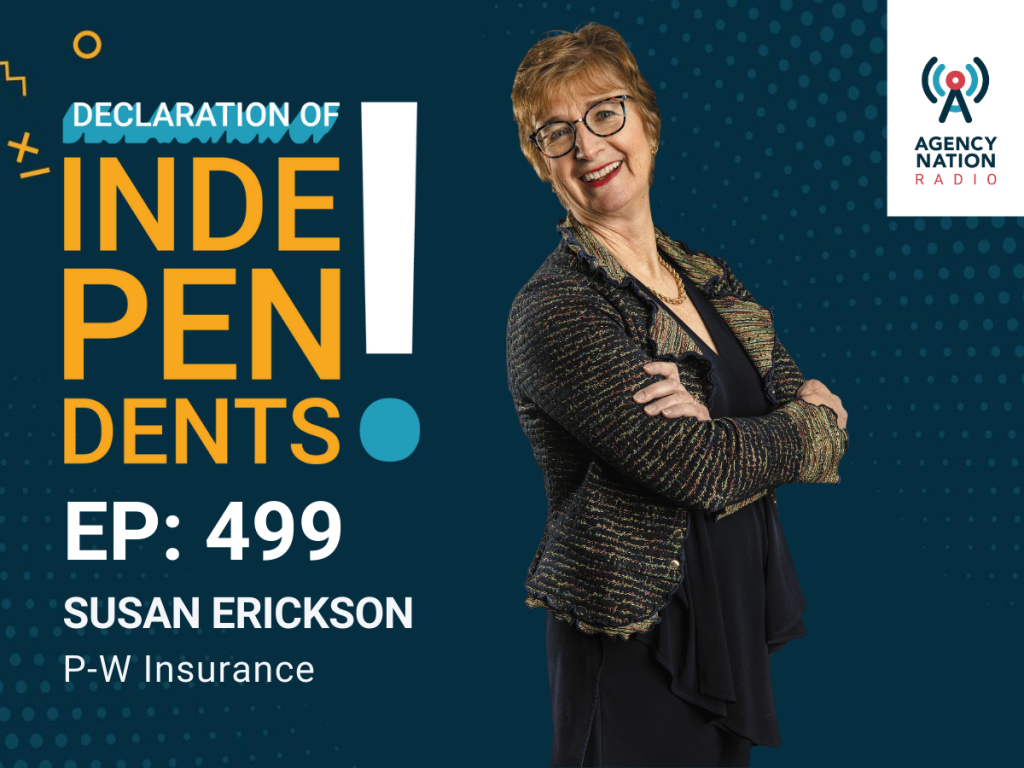Carriers, Under Glass
By: Susan Hodges
| Call Chris Boone old-fashioned—or call him realistic. As executive vice president of marketing for Bancorp South Insurance Services in Jackson, Miss., Boone selects the insurance companies this 30-branch agency uses. The agency currently represents 200 carriers. Of them, Boone has three basic requirements. “It’s not rocket science,” he says. “We want to know if a carrier’s appetite fits what we write for classes of business, and whether it has the [state] filings to handle our geographic footprint, since we write business in nine states. We also want to know if they’re enthusiastic about writing business. Even if a carrier has a narrow appetite, we’re generally inclined to take them on if they’re enthusiastic and have a good attitude.” Rick Combs, vice president of personal lines at Coopers Simms Nelson Mosely, Inc., in Winter Park, Fla., has different criteria for selecting and keeping carriers. But when it comes to property insurers in particular, his requirements are even more basic than Boone’s: He wants honest companies that will stay in business. “I’ve been here for 13 years, and when I started we had a variety of national carriers and only used those that were rated A or better,” he recalls. “But one by one over the last eight years, most of those companies pulled out of Florida. Now we have several [Florida-domiciled] property insurers with B++ ratings, and they’ve been very stable. We want to keep them.” Times have certainly changed. Less than a decade ago, most reputable agencies wouldn’t represent a property insurer with less than an A rating from A.M. Best, whether they were in Pensacola or Pittsburgh. Today, however, top-notch financial ratings may not figure among an agency’s primary criteria for carriers. Nor may technological prowess. “Technology doesn’t matter if they don’t want to write business,” explains Boone. “Who cares about download if every time you submit something, they tell you no?” Disaster and Response Coastal and southeastern states are experiencing the most flux, but ripple effects are spreading. Paul Kendall, president of Lawrence and Wheeler Insurance in Springfield, Vt., says one of his agency’s regional carriers is leaving the state. Another of his carriers is raising rates by 25% across the board. To cope, the agency will roll its book of business with the regional carrier to another insurer. But Kendall will use a different strategy to deal with rising premiums at the other company. “We won’t panic and roll that book, because all companies move up and down in pricing occasionally,” he says. “But we will look at it and ask ourselves if it makes sense to move the business temporarily. We try not to get too top-heavy with any one carrier.” Lawrence and Wheeler is a small agency with 10 carriers in a state that has experienced few recent natural disasters. Even so, Kendall says he spends more time on carrier concerns now than he once did. “I think it’s because of the competitiveness of the marketplace,” he says. “In the last five to six years, business has become very competitive, and we have to be aware of what all our carriers are doing, what the market is doing and how well we’re competing with other agencies. If we don’t have a good mix of carriers and products, we’ll lose business.” When evaluating a carrier, Kendall looks first at financial stability and considers only those companies with an A.M. Best rating of A or better. Then he researches the carrier’s reputation in the marketplace. “We recently had a company that wanted to appoint us, and they were an A-rated carrier,” he says. “But I asked for three other agents in Vermont that I could talk to about them, and I didn’t get good reports about servicing or client care from any of them. We don’t want to get into a situation where a company won’t come through for us.” Planning for Protection Yet, even amid the dearth of quality carriers, Combs has found occasion to say no. “We’ve turned down some companies that have awesome pricing, but I heard from other agencies that they don’t like to pay claims,” he says. “We don’t need that headache, even if they’re the cheapest on the block.” If Florida’s regulatory and insurance environment improves, Combs thinks the number of reputable carriers doing business there could increase. A handful of national carriers are writing high-net-worth homeowners coverage now, and at least one is writing commercial auto. “The door is open,” says Combs, “but it may take a lot of reform for big companies to feel comfortable.” Despite a consensus that insurers delivering bad service and waffling on claims should be shunned, agents interviewed for this story generally believe carriers should be held onto and treated with care. “Why would I ask one to leave?” wonders Chris Boone. “I don’t find narrowing down our markets to be in the interest of our firm. The next day I’ll get a call from a producer who says he needs access to that company.” Ron Bixby feels similarly, even though, like Paul Kendall, he writes business in carrier-rich Vermont. “Many of us have more carriers than we need, but that gives us more options for quoting,” says Bixby, president of Ludlow Insurance in Ludlow, Vt. Ludlow Insurance represents 12 carriers, comprising a mix of regionals and nationals, as well as mutuals and stock companies. But still the companies come knocking. “Every year the company reps come in, and their goal is to grow their business,” he says. “But almost none of the carriers looking to [expand into] new agencies here are requiring a minimum. They seem to be trying to grow without asking agencies to commit to a certain volume of business.” Picking Priorities Not every carrier used by the agency participates in the firm’s real-time rating program, and Bixby admits that the inconsistency causes a small headache. “But it’s not a main issue for keeping a company,” he says. “It’s just another couple of clicks to get into their systems.” Jeff Owyoung writes coverage in McGehee, Ark., not far from the Mississippi state line. As president of Milner Owyoung Insurance Group, he also values the technology his carriers provide, but shares Bixby’s tolerance for imperfection. “Technology is important,” Owyoung says. “The ease of quoting, endorsements and issuing policies online is a tremendous advantage. However, technology is not important if the company is not competitive or has limited products.” Owyoung’s requirements for carriers include a national presence, a strong financial rating, a broad range of products and competitive pricing, in that order. Also important: a good reputation for handling claims and ease of doing business. “You can never have too many companies that are writing business,” he says. “I would not encourage an agency to sever a relationship due to the changing effects of the insurance business. A company might start a niche line that could be important to your book of business.” Owyoung thinks that most carriers experience competitive swings, working aggressively to acquire market share for a while and then retreating until new carriers enter a territory and become competitive. Through it all, he thinks agencies do best to remain open to new and existing markets so they can grow and maintain their books of business. “It would be great to represent one very competitive company that could write all of our needs, but that’s not going to happen,” he says wryly. “So it’s important to obtain contracts with those companies [that] are competitive and want to grow their book as much as you want to grow yours.” That being said, BancorpSouth Insurance Service’s Boone makes a case for level-headedness and the importance of top-notch financial ratings. “I had a producer tell me this morning he’d like to pick up a contract with a certain B-rated workers compensation carrier,” says Boone. “I told him we don’t need them; that we have enough monoline workers comp carriers and the market is starting to shift. Besides,” he continues, “they’re not A-rated. Why would we take on another mouth to feed when this company doesn’t represent the financial stability we already have in the shop? I told him I don’t think we’ll go down that road.” Hodges (hodgeswrites@gmail.com) is an IA senior contributing writer. | —S.H. |










